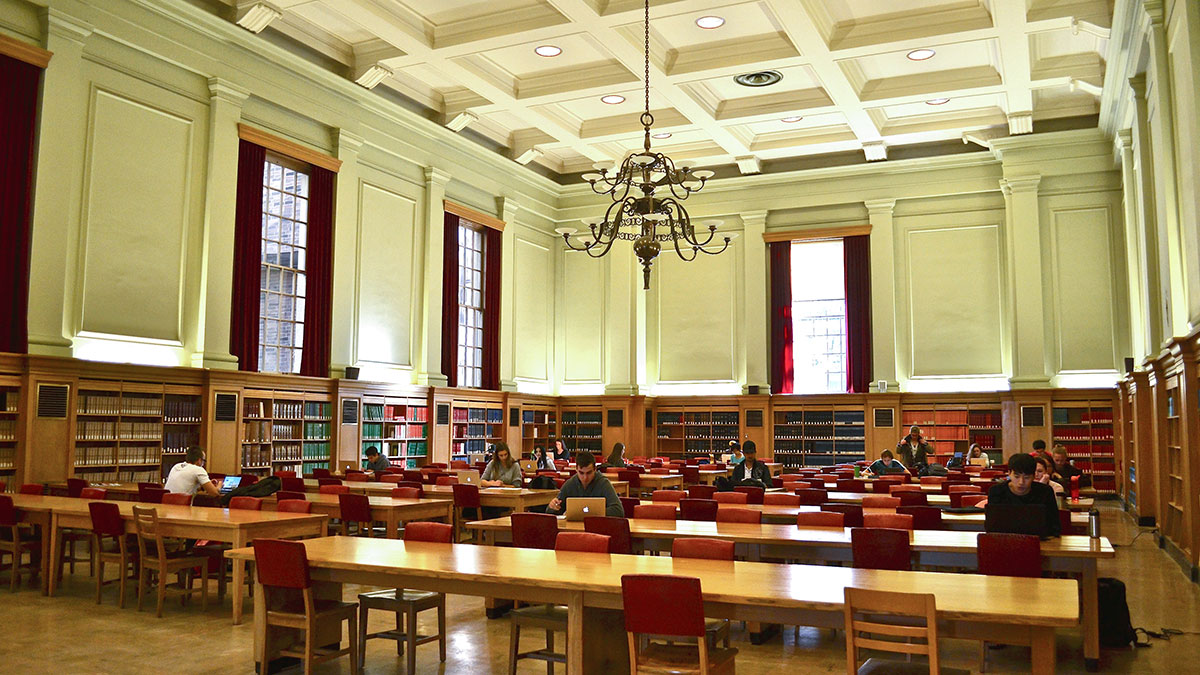Learning about diversity by the book with The Human Library
 Willow Austin
Willow AustinThe Human Library
Thursday March 17 from 2:00 to 6:45 p.m.
Rutherford Library
Free. You can drop in or make appointments online.
People often describe themselves as open books, but at the Human Library you don’t have to read between the lines to get a full story. This year, the University of Alberta is hosting a Human Library for Equity, Diversity, and Inclusion Week. Human Library is an international movement that was started in 2000 in Copenhagen, in which human “books” have 45 minutes to share personal experiences with “readers” who get to ask them questions about their stories.
“The whole purpose of the Human Library is to find people who are willing to share their story — but not just any story — it’s some incident or situation in which they feel that they experienced prejudice, there was stereotyping or lack of understanding of their values or beliefs. It’s really quite based in human rights,” explains Catherine Anley, who is an Employment Equity Advisor at U of A and the co-organizer of North Campus’ Human Library, along with Lisa Lozanski, who works in global education.
This isn’t Edmonton’s first Human Library, or even the University’s. Last year, Anley and Lozanski organized their first Human Library for one day during International Week, and it was so popular they decided to bring it back for a second year, this time for two days. There have also been Human Libraries at the Edmonton Public Library, and one each term at Augustana since 2009.
According to Anley, a true Human Library by the standards of the international organization is one-on-one. For the purpose of reaching as many people as possible, however, this one will allow three readers at a time per book. Two of those will be online bookings, and one can be drop in. If you are dropping in, plan to arrive about 15 minutes early so you can make sure to sign up for the book you want.
This year, there are 11 books, whose titles include “Wheels: Don’t Let Your Disability Define Your Abilities,” “Meantime: Reflections on Trans Exclusions From an Ex-Substitute Teacher,” and “A Surprising Journey to the World of Education.”
After an usher takes you to your book, your 45 minutes begin, the first 20 of which are for the book to tell you their story. After that, you have the rest of the time to ask questions.
“It gives people the chance to ask those questions that maybe they’d be afraid to ask … it creates a welcoming, supportive environment for that,” says Anley, noting that to get the best experience from your 45 minutes you should really think about the questions you want to ask and what you want to take from it in advance.
“Do little bit of self-reflection, and don’t censor yourself … allow yourself to feel that and then come to the session and speak from your heart.”
Another thing that sets this Human Library apart from the others is the presence of conversation facilitators, who are available to ensure respectful dialogue and offer support to the books, and even the readers. Respect and comfort (for books and readers) are an important element of the Human Library. Anley explains
“There’s no question that’s wrong – there’s nothing that you can’t ask the book, but the book may choose to not answer or redirect.”
Another thing that’s important keep in mind is that the books are sharing their personal stories. They’re not advocating for a group or representing the political views of an entire country. They are simply representing one unique perspective.
As far as choosing participants went, Anley and Lozanski put out a call for books, and met individually with those who responded to have a conversation and explain what was involved so they could decide whether they were interested.
“The books have to be in a place where they’re comfortable with their story, and they might think they are but when they get talking it ends up being too close to the surface, or the emotions are a little too raw and they decide they don’t want to do this right now,” Anley explains of the selection process.
Some of this year’s books also participated last year, and could offer support and advice to new books, because understandably, according to Anley, “if you haven’t been a book before, you might be a little anxious.”
According to testimonials from last year’s books and readers alike, the Human Library is unique in its ability to facilitate conversations between people who may otherwise never come into close contact with one another. Each conversation is a little bit different, and it’s a learning experience for both parties.
Anley explained the decision to include Human Library in this year’s Equity, Diversity, and Inclusion Week as a way to learn about diversity on a very personal level:
“How are we building our skills and abilities to just simply have a conversation with someone and to learn about a different perspective? I think that’s essential.”




